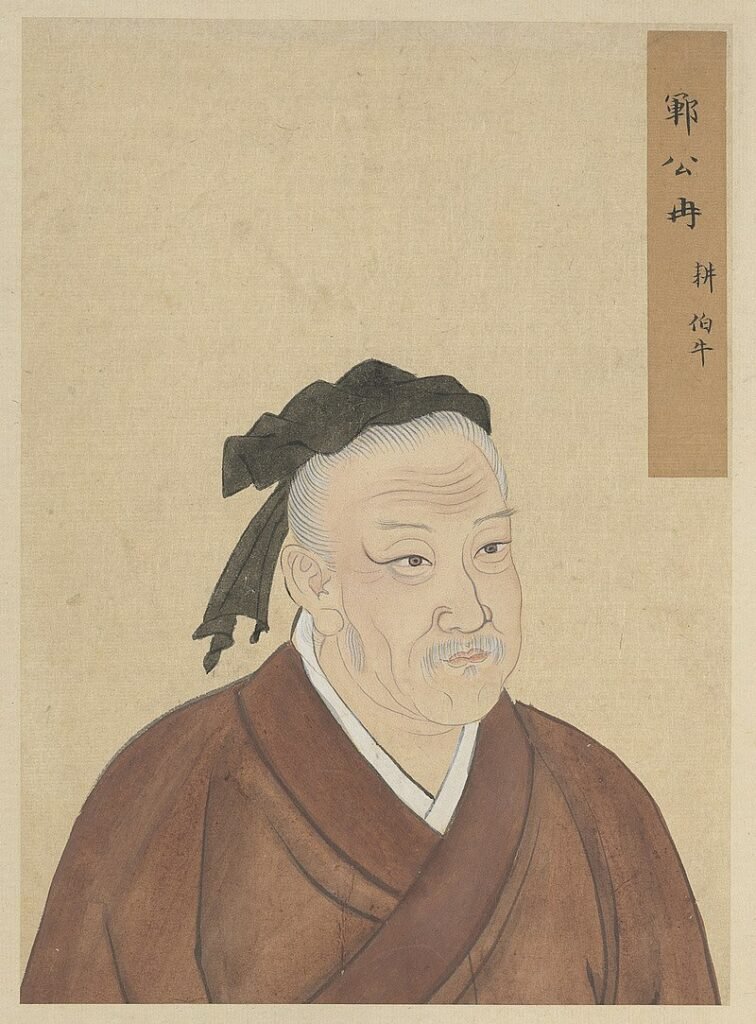孔門十哲 The Ten Disciples of Confucius

冉耕 Ran Geng
Ran Geng (545 BC – 484 BC), courtesy name Ji, was a politician and philosopher in the State of Lu during the Spring and Autumn period. He was one of the students of Confucius. He made significant contributions to the inheritance and development of Confucianism, and is revered as one of the representative figures of the Confucian school.
冉耕 Ran Geng
Ran Geng (545 BC – 484 BC), courtesy name Ji, was a politician and philosopher in the State of Lu during the Spring and Autumn period. He was one of the students of Confucius. He made significant contributions to the inheritance and development of Confucianism, and is revered as one of the representative figures of the Confucian school.
Biography
Ran Geng possessed remarkable talent and achievements in both the political and educational fields. As a minister of Lu, he devoted himself to the reform and development of the country. He proposed a series of policy and institutional reforms aimed at enhancing the nation’s governance capacity and promoting social harmony and stability. He emphasized the importance of moral ethics and advocated benevolence and loyalty as core values, being responsible for the interests of the state and its people.
Ran Geng also made profound contributions to education. He valued the role of education and advocated an educational system based on Confucian classics, emphasizing the cultivation of moral qualities and knowledge. He believed that education was an important means to cultivate outstanding talents and to propel social progress and personal growth.
Ran Geng made significant contributions to the development of Confucianism as well. He organized and compiled the teachings of Confucius, systematizing his ideological framework and providing important reference for future Confucian scholars. His teachings emphasized personal cultivation and the nurturing of ethical values, highlighting the pursuit of self-improvement and the harmonious development of society.
Ran Geng’s thoughts and contributions had a far-reaching influence, not only positively impacting the politics and education of Lu, but also exerting profound effects on the subsequent development of Confucianism and Chinese culture. He is honored as one of the important heirs of the Confucian school, and his teachings and thoughts have provided crucial guidance and inspiration for future Confucian scholars. His name and deeds are recorded in historical documents and revered and celebrated by later generations.



